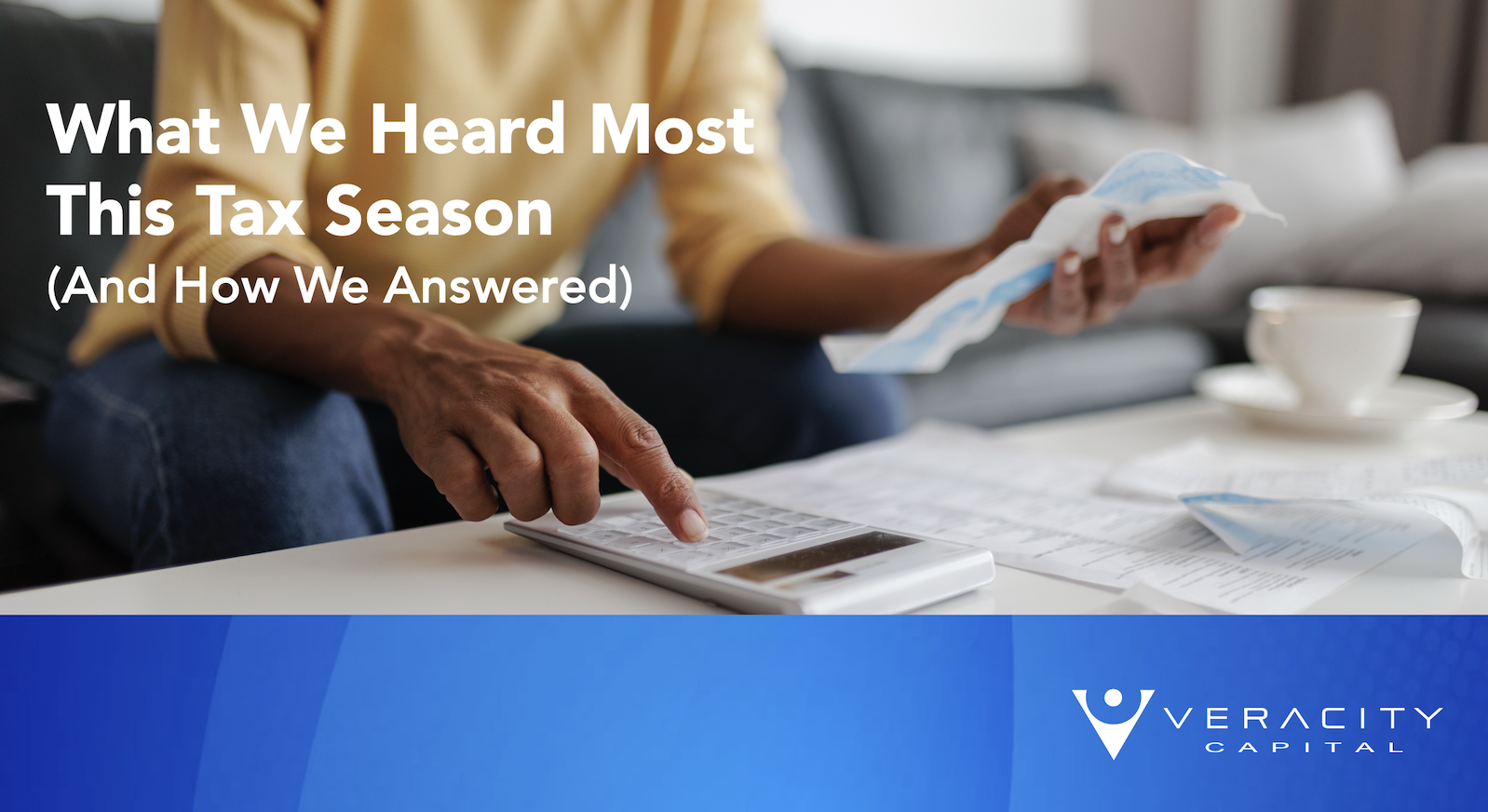Just because Tax Day is over doesn’t mean your planning should be. In fact, now is a great time to step back, assess what worked (and what didn’t), and get ahead of next year’s opportunities. With that in mind, we’ve rounded up some of the most common tax questions we’ve received this season, along with how we’re helping people think them through.
Q: How do I plan for unpredictable income?
A: Fluctuating income like bonuses, investment gains, or business profits, requires a proactive plan. Here’s how to manage it effectively:
-
- Make estimated quarterly payments to avoid penalties
-
- Use tax-advantaged accounts like 401k, IRAs, and HSAs to smooth taxable income
-
- Consider income deferral strategies to manage when income is recognized
Q: What’s the best retirement account for me?
A: It depends on your income, goals, and business structure. Top options for high earners include:
-
- 401(k) or Solo 401(k): Ideal for those with employer-sponsored plans or self-employed professionals
-
- SEP IRA: Great for business owners making large, tax-deductible contributions
-
- Roth IRA: Offers tax-free growth—if over the income limit, consider a backdoor Roth strategy
Q: Should I elect S-Corp status?
A: S-Corps can help reduce self-employment taxes, but they’re not for everyone. Key items to consider:
-
- Tax savings: May reduce self-employment taxes by splitting income into salary and distributions
-
- Compliance: Additional administrative and reporting requirements
-
- IRS scrutiny: The IRS closely monitors salary vs. distributions
-
- Expert advice: Consult a tax pro to evaluate whether it’s right for your situation
Q: How do I reduce taxes on my investments?
A: Taxes on investment gains can add up, but these strategies can help minimize the impact:
-
- Tax-loss harvesting: Offset capital gains by selling underperforming assets
-
- Municipal bonds: Earn tax-free interest income
-
- Long-term holding: Reduce taxes by benefiting from lower long-term capital gains rates
-
- Qualified Opportunity Zones & 1031 exchanges: Defer or reduce capital gains taxes on real estate and other investments
Q: Should I consider filing a tax extension in the future?
A: An extension gives you more time to file—not more time to pay. It can make sense if:
-
- You need time to maximize deductions
-
- Your situation is complex and requires a slower, more strategic review
Just don’t forget: estimated taxes are still due by the April deadline.
Tax season may be over, but the smartest tax moves happen year-round—whether it’s reviewing income, refining your business structure, or staying ahead of tax law changes.
If you have questions or want to explore opportunities for the rest of the year, reach out to your advisor, email us at [email protected], or schedule an introductory meeting here.
Investment advisory services are offered through Veracity Capital, LLC, a registered investment adviser. Insurance products and services are offered through Veracity Capital Risk Management, LLC, an affiliated insurance agency. Tax preparation and planning services are offered through Veracity Capital Tax Advisors, an affiliated company.
Information presented is for educational purposes only and does not intend to make an offer or solicitation for the sale or purchase of any specific securities, investments, or investment strategies. Investments involve risk and, unless otherwise stated, are not guaranteed. Be sure to first consult with a qualified financial advisor and/or tax professional before implementing any strategy discussed herein. Past performance is not indicative of future performance.

